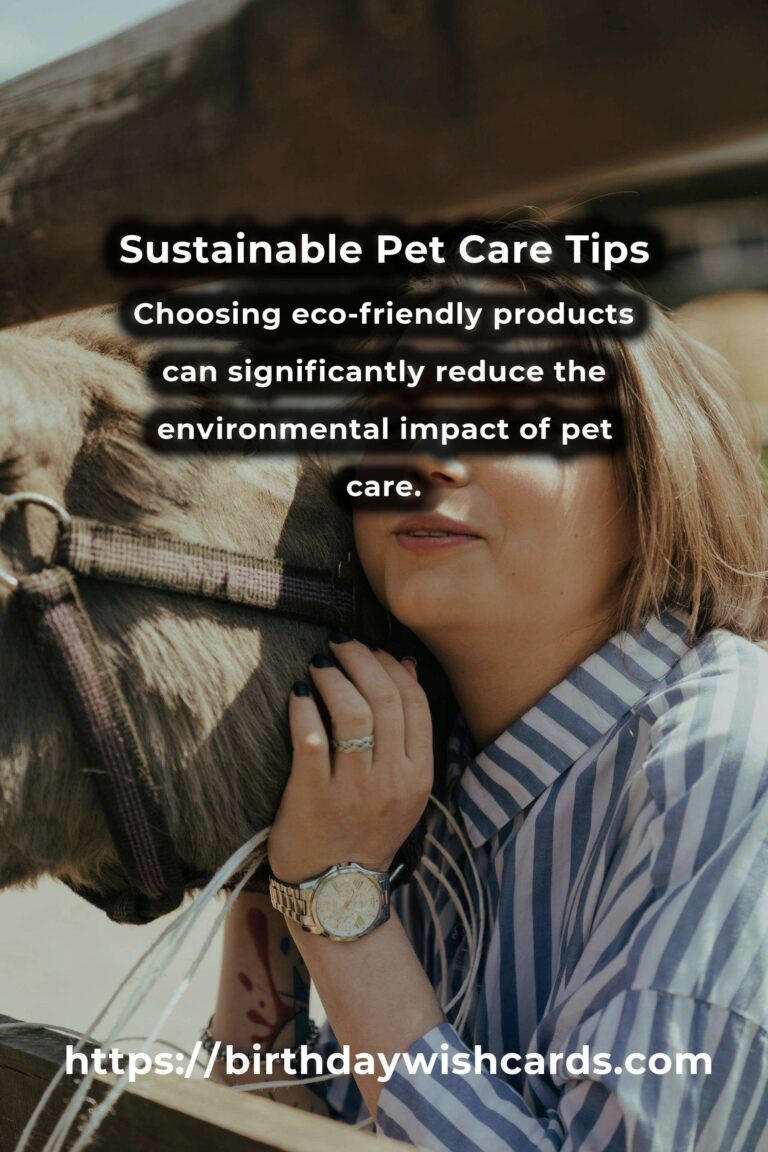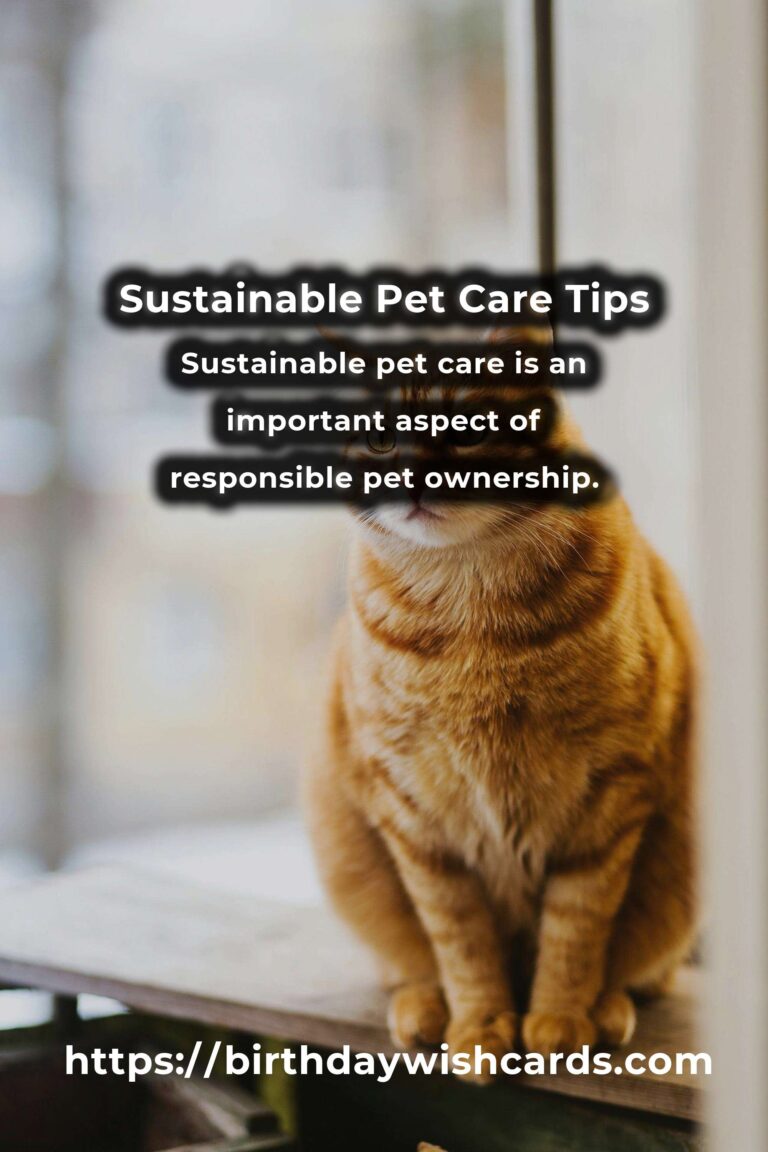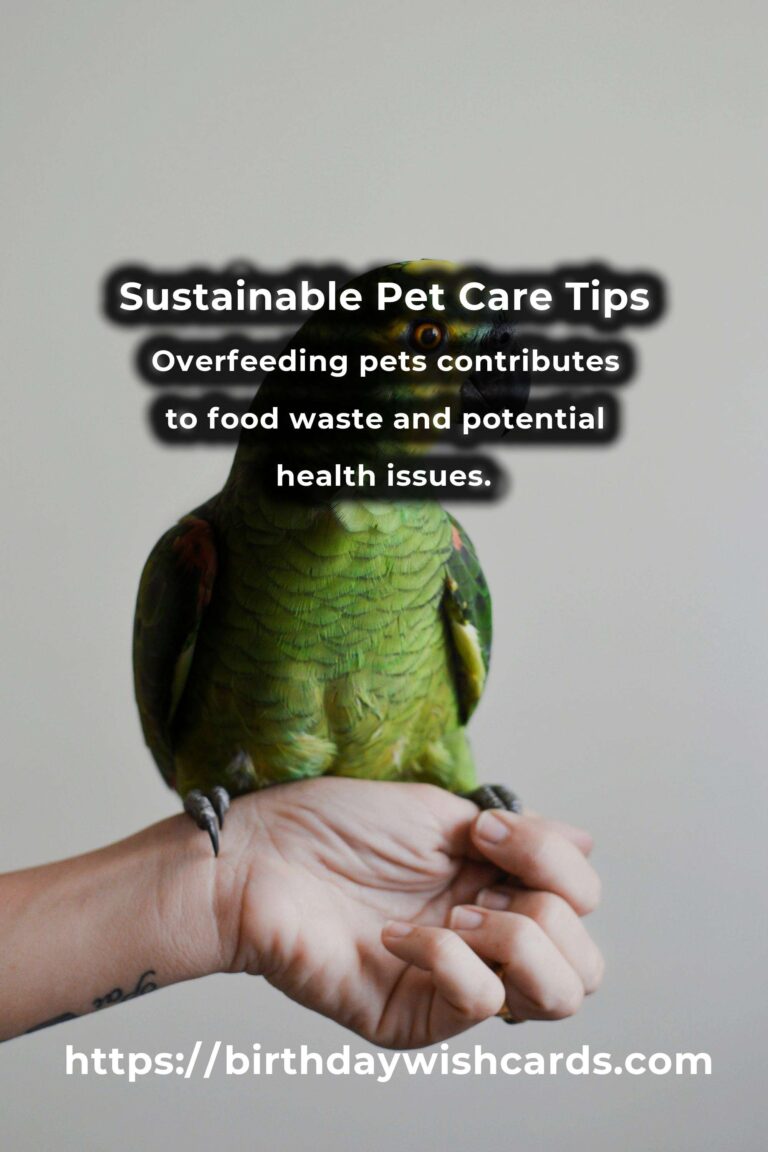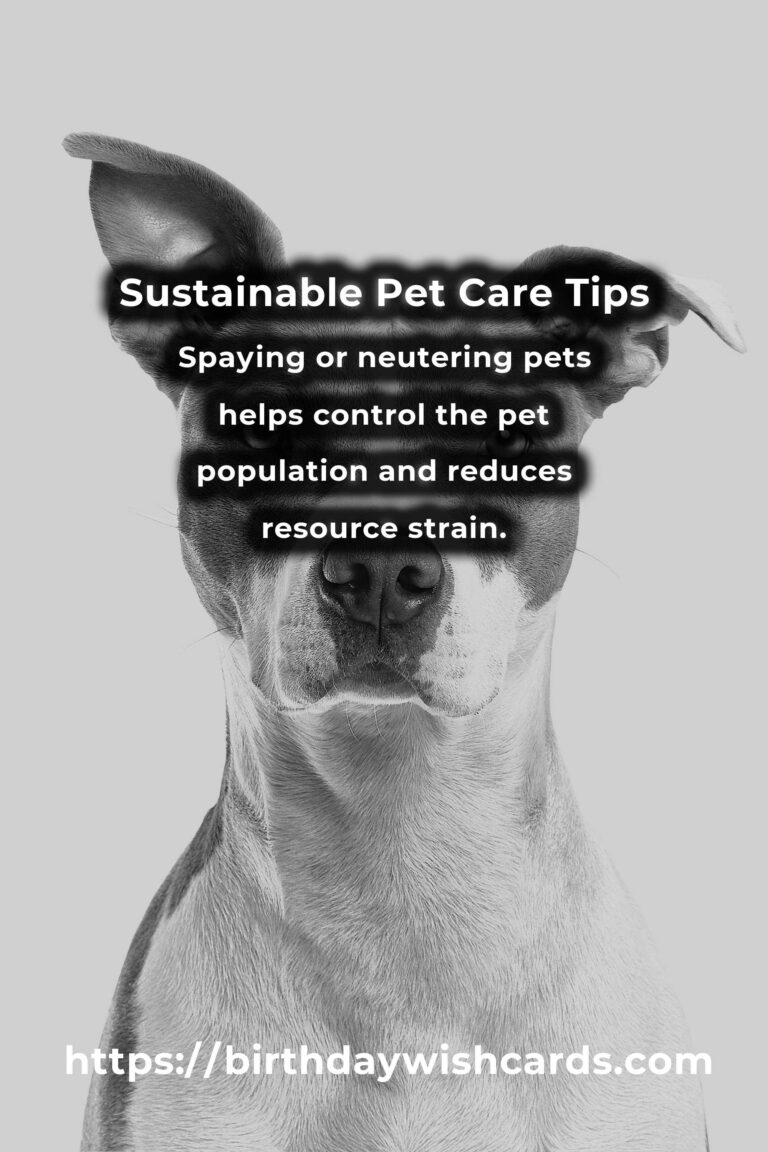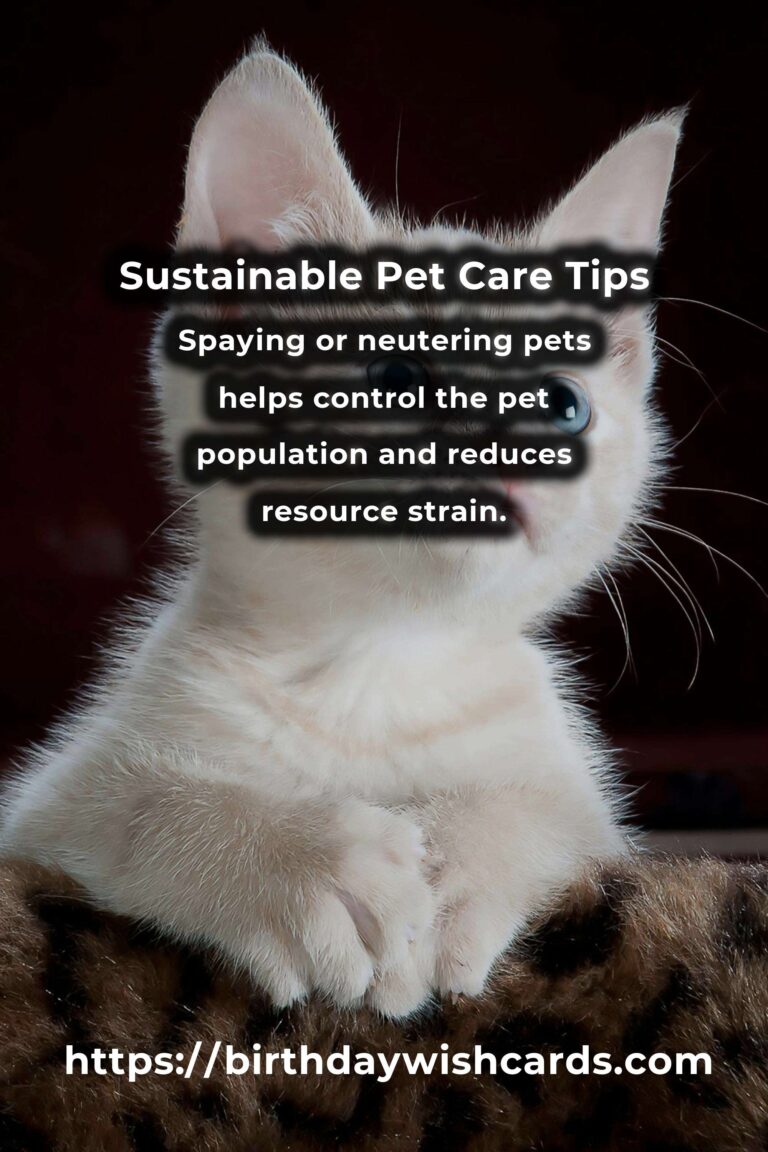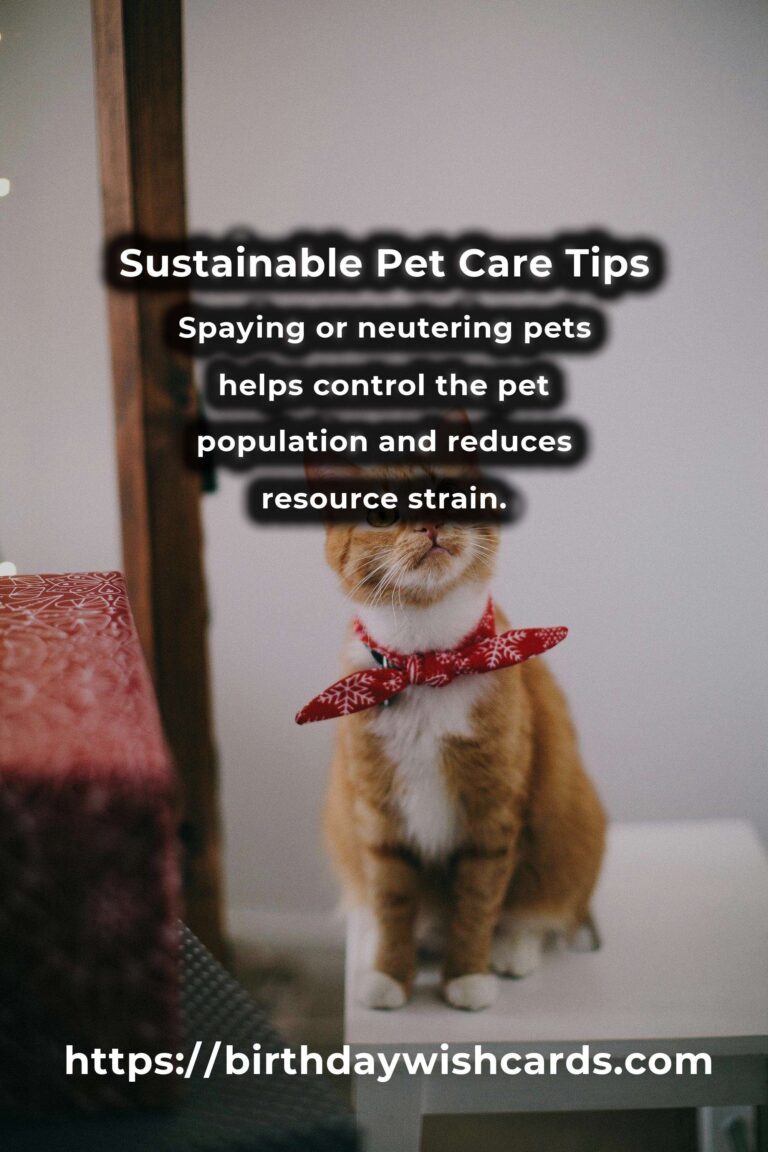
Sustainable pet care is an important aspect of responsible pet ownership. As more pet owners become conscious of their environmental impact, they are looking for ways to ensure their furry friends live a green and healthy life. However, there are several common mistakes pet owners make in their quest for sustainability. This article will explore these errors and provide practical solutions for avoiding them.
Choosing Non-Eco-Friendly Pet Products
One of the most common mistakes in sustainable pet care is purchasing non-eco-friendly pet products. Many pet toys, bedding, and accessories are made from synthetic materials that are not biodegradable and can harm the environment. Opt for products made from natural, sustainable materials like organic cotton, hemp, or bamboo.
Overfeeding and Food Waste
Overfeeding pets not only leads to health issues but also contributes to food waste, which is a significant environmental concern. Measure your pet’s food portions carefully and store pet food properly to avoid spoilage. Consider composting food scraps and investing in locally-sourced or organic pet food brands to reduce your carbon footprint.
Ignoring the Impact of Pet Waste
Pet waste is often overlooked in sustainable pet care. Many pet owners use plastic bags to dispose of pet waste, which adds to landfill problems. Use biodegradable bags instead and consider composting pet waste if feasible and safe to do so. For cat owners, choose eco-friendly litter made from recycled paper or wood.
Neglecting Regular Vet Check-Ups
An often-overlooked aspect of sustainable pet care is health maintenance. Regular vet check-ups can prevent serious health issues, reducing the need for intensive treatments and medications that have environmental costs. Keeping your pet healthy is a key component of sustainability.
Not Spaying or Neutering Pets
Overpopulation of pets can strain resources and increase the number of animals that require homes. Spaying or neutering your pets helps control the pet population, ultimately reducing the number of stray animals and the resources required to care for them.
Using Chemical-Based Cleaning Products
Many pet owners use chemical-based cleaning products around their pets, which can be harmful to both the pet and the environment. Opt for natural, non-toxic cleaning products that are safe for pets and reduce harmful chemical runoff.
The Importance of Education and Awareness
Educating yourself and raising awareness about sustainable pet care practices is crucial. Stay informed about the latest eco-friendly products and practices, and share this knowledge with other pet owners. Advocacy can lead to more widespread adoption of sustainable practices, benefiting the environment and pet health.
Conclusion
By avoiding these common mistakes, pet owners can significantly reduce their environmental impact while ensuring their pets live healthy, sustainable lives. From choosing eco-friendly products to maintaining your pet’s health, every small change contributes to a larger positive impact on the planet.
Sustainable pet care is an important aspect of responsible pet ownership. Choosing eco-friendly products can significantly reduce the environmental impact of pet care. Overfeeding pets contributes to food waste and potential health issues. Regular vet check-ups are essential for maintaining pet health sustainably. Spaying or neutering pets helps control the pet population and reduces resource strain.
#SustainablePetCare #EcoFriendlyPets #GreenPetCare #PetHealth


